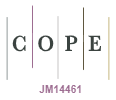Storytelling
a way to delight students and enrich pedagogical practice
DOI:
https://doi.org/10.5585/eccos.n69.26379Keywords:
storytelling, school, reading mediation, pedagogical practiceAbstract
Storytelling contributes to the constitution of subjects, as it stimulates imagination, develops linguistic skills and promotes cultural values, empathy and understanding of the world. However, stimulating reading practices are still little explored at school. From this perspective, this qualitative and bibliographical research aims to discuss the importance of storytelling in teaching mediation and present, based on a literary work, ways for teachers to explore the moment with stories with more confidence and ease. The theoretical contribution of this study was based on discussions by Zilberman (2003, 2012), Colomer (2007) and Busatto (2003). As a result, it was found that storytelling strengthens the emotional bond between adults and children, providing moments of connection and learning, in addition to the fact that literary experiences can enhance classes and enrich pedagogical actions and be a great incentive to promote reading contributing to the human development of students.
Downloads
References
ABATE, E. A. B.; STOLTZ, T. Contação de histórias e desenvolvimento do adulto contador. Práxis Educativa, [S. l.], v. 15, p. 1–17, 2019. https://doi.org/10.5212/PraxEduc.v.15.14674.020. Disponível em: https://revistas.uepg.br/index.php/praxiseducativa/article/view/14674. Acesso em: 18 mar. 2024.
ABRAMOVICH, F. Literatura Infantil: gostosuras e bobices. São Paulo: Scipione, 2004
ANTUNES, J. M; MARTINS, R. L; KUNZ, M. A. 2021. Eu conto, tu contas, ele conta: A leitura compartilhada para a promoção do protagonismo infantil. Revista Humanidades e Inovação, 8(33), 342-351.
BACHELARD, G. A poética do espaço. Tradução Antonio de Pádua Danesi. 2. ed. São Paulo: Martins Fontes, 2008.
BAJARD, Élie. A sessão de mediação: Um dispositivo engenhoso. In: BAJARD, Élie. Da escuta de textos à leitura. 2. ed. São Paulo: Editora Cortez, 2014. p. 43-66.
BEDRAN, BIA. A arte de contar histórias. Narrativas orais e processos criativos. Rio de Janeiro: Nova Fronteira, 2012.
BEDRAN, Bia. Cantar e contar histórias. In: MEDEIROS, Fábio Henrique Nunes e MORAES, Taiza Mara Rauen (Org). Contação de Histórias: Tradição, poética e interfaces. São Paulo: Edições Sesc São Paulo, 2015.
BUSATTO, CLÉO. Contar e Encantar. Pequenos segredos da narrativa. Petrópolis: Editora Vozes, 2003.
CANDIDO, A. O direito à literatura. In: CANDIDO, A. Vários escritos. 3. ed. São Paulo: Duas Cidades, 1995
CAVALCANTI, Joana. Caminhos da literatura infantil e juvenil: dinâmicas e vivências na ação pedagógica. São Paulo: Paulus, 2002.
COLOMER, Teresa. Andar entre livros: a leitura literária na escola. São Paulo: Global, 2007.
DANTAS, GOIMAR. A arte de criar leitores. Reflexões e dicas para uma mediação eficaz. São Paulo: Senac, 2019.
DIETER, Márcia Funke. Gabriela, a borboleta amarela. Ivoti: Ateliê de Histórias, 2014.
ECO, Umberto. O Nome da Rosa. Traduzido por Aurora Fornoni Bernardini e Homero Freitas Andrade. Rio de Janeiro: Record, 2015.
FAILLA, Zora. Retratos de Leitura no Brasil 5. São Paulo: GMT Editorial Ltda, 2021.
GOMES, ELAINE. A arte de narrar histórias. São Paulo: Senac, 2018.
JARDIM, Mara Ferreira. Critérios para análise e seleção de literatura infantil in: SARAIVA, Juracy Assmann. Literatura e alfabetização do plano do choro ao plano da ação. Porto Alegre ArtMed.2001.
KLEIMAN, Angela. Textos & Leitor: aspectos cognitivos da leitura. São Paulo: Pontes, 2016.
PANOZZO, Neiva Senaide Petry; RAMOS, Flávia Brocchetto. Interação e mediação de leitura literária para a infância. São Paulo: Global, 2011.
REIS, Caroline Kirsten. História da escrita: uma contextualização necessária para o processo de alfabetização. Monografia. Universidade Federal de Uberlândia. Uberlândia, 2019.
REYES, Yolanda. A casa imaginária: leitura e literatura na primeira infância. São Paulo: Global, 2010.
SILVA, Ana Araújo. Literatura para Bebês. Pátio, São Paulo, n.25, p. 57-59, fev./abr.2003
SISTO, Celso. Contar histórias, uma arte maior. In: MEDEIROS, Fábio Henrique Nunes & MORAES, Taiza Mara Rauen (orgs.). Memorial do Proler: Joinville e resumos do Seminário de Estudos da Linguagem. Joinville, UNIVILLE, 2007.
SILVEIRA R. H. KIRCHOF, E. R. et al. A diferença na literatura infantil: narrativas e leituras. São Paulo: Editora Moderna LTDA, 2012.
SOUZA, Renata Junqueira de. Prefácio. In: SOUZA, Renata Junqueira de (org.). Biblioteca escolar e práticas educativas: o mediador em formação. Campinas: Mercado de Letras, 2009. p. 9-18.
VYGOTSKY, L.S. Imaginação e criação na infância. 1 a ed., São Paulo: Expressão Popular, 2018.
ZILBERMAN, R. A. Leitura e o ensino da Literatura. Curitiba: InterSaberes, 2012.
ZILBERMAN, R. A infantil na escola. 11. ed. rev. e ampl. São Paulo: Global, 2003
Downloads
Published
How to Cite
Issue
Section
License
Copyright (c) 2024 Márcia Tatiana Funke Dieter, Jéssica Maís Antunes, Lovani Volmer

This work is licensed under a Creative Commons Attribution-NonCommercial-ShareAlike 4.0 International License.
- Abstract 547
- pdf (Português (Brasil)) 258






